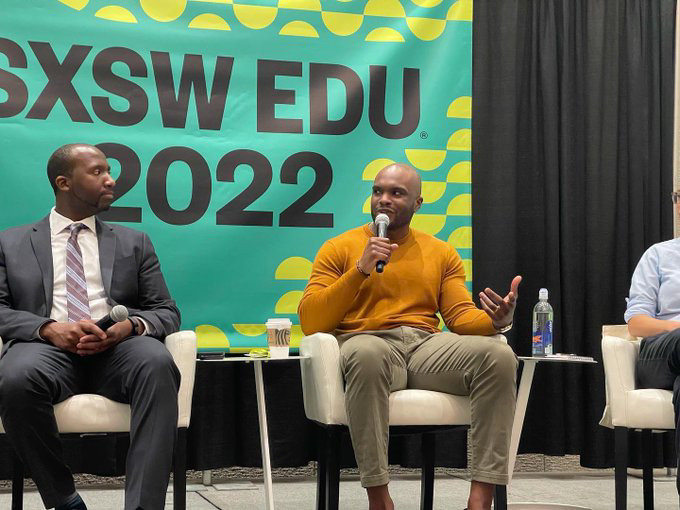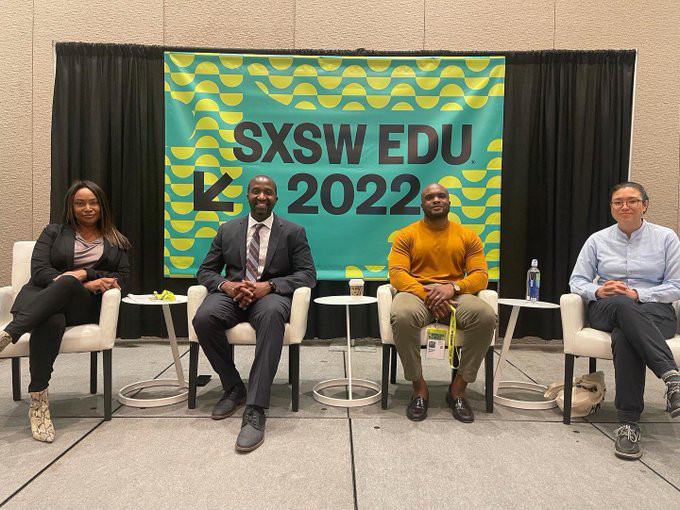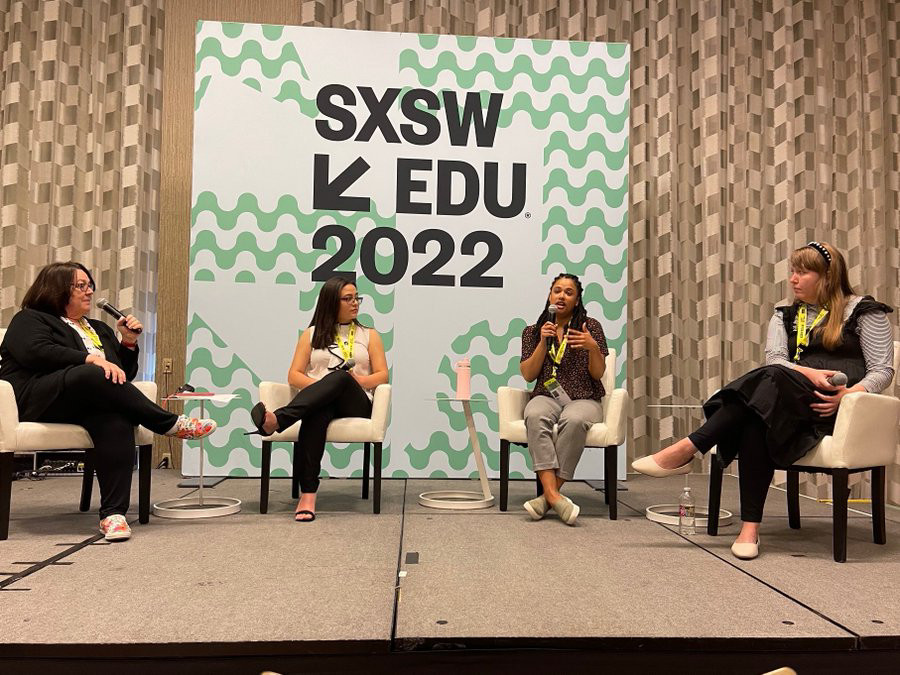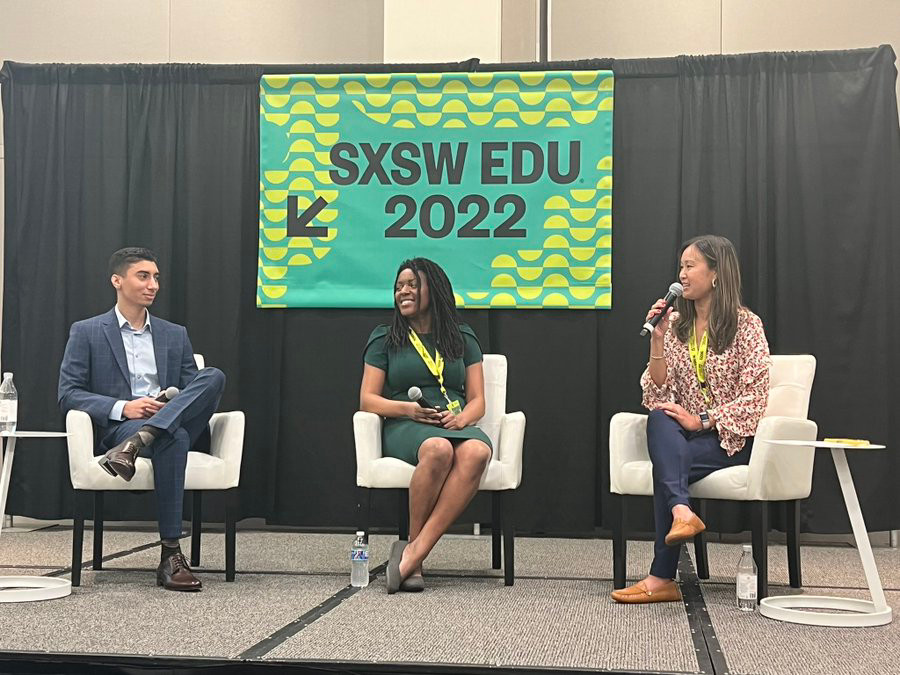Reflections from SXSW EDU

Written by Hannah Lee, director, Cognizant Foundation
Earlier this month I attended SXSW EDU along with some of my colleagues, where we had the opportunity to connect with grantee partners, policymakers and education leaders from across the country who share our mission to increase access to education and create pathways towards economic mobility for all.
Throughout the conference, I was fortunate to hear directly from individuals who went through programs such as Ada Developers Academy, Code2College, CodePath and the Turing School of Software and Design. These alumni are now software engineers—leading teams, influencing tech culture and creating technologies that we interact with everyday. I also heard from leaders at Marcy Lab School, Teach for America and educators from school districts across the country. I am continually inspired by them and how they are shaping the future.




Throughout the week, three key themes arose, and I’ve been reflecting on them since leaving Austin.
Unlocking the door to economic mobility requires a two-pronged approach—we must provide individuals the opportunity to build upon their previous experience with a new set of skills, while also creating clear pathways for those skills to be leveraged into in-demand careers. This way, we can work to break down systemic racial and economic barriers that span from K-12 through college and beyond.
Visibility matters—the path to rewarding careers in tech becomes blurred when students don’t have teachers, leaders, mentors or role models who look like them. With access to Black mentors and teachers, women like Sage Lee—current associate software engineer at Handshake and Turing School alumna—are able to see what is possible for Black women in tech. This kind of support is vital to the success of people of color, and particularly women of color.
Imposter syndrome is real—but so is the power of mentorship and social capital. Mentorship is one of the most potent antidotes to imposter syndrome, and the power of mentorship is the catalyst for programs like Ada, Code2College and Marcy Lab. It is instrumental to provide both networking opportunities and support for building social capital as students pursue and attain successful careers.
I’m so grateful to have heard from leaders and students, including some of the foundation’s grantees, who are constantly innovating how we dismantle systemic barriers to fulfilling careers in tech. I look forward to carrying this momentum into our ongoing grantmaking and work.